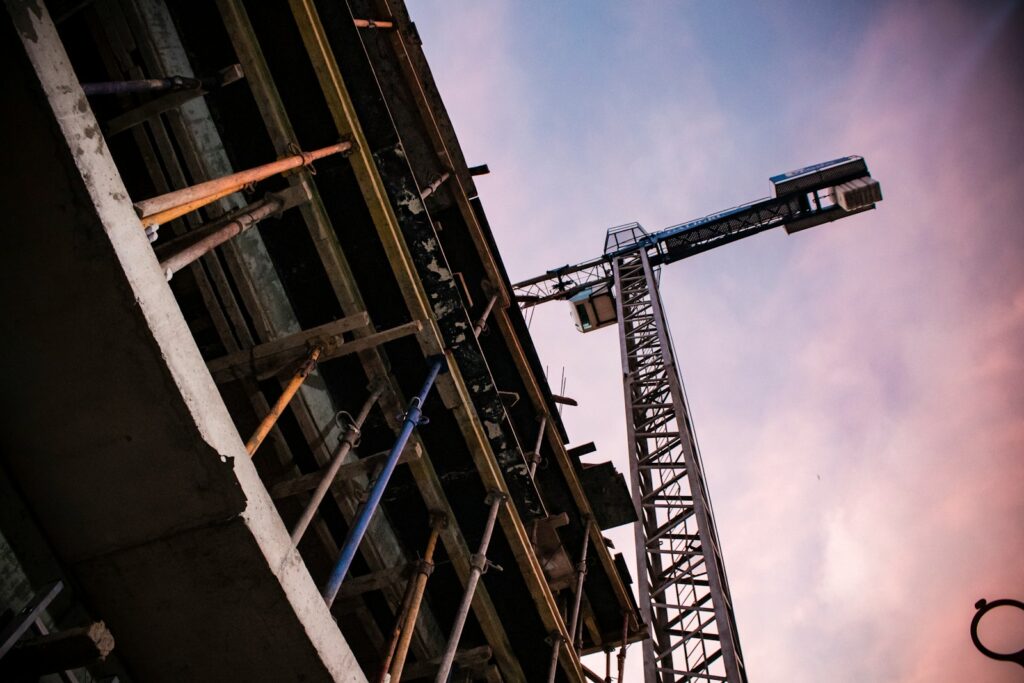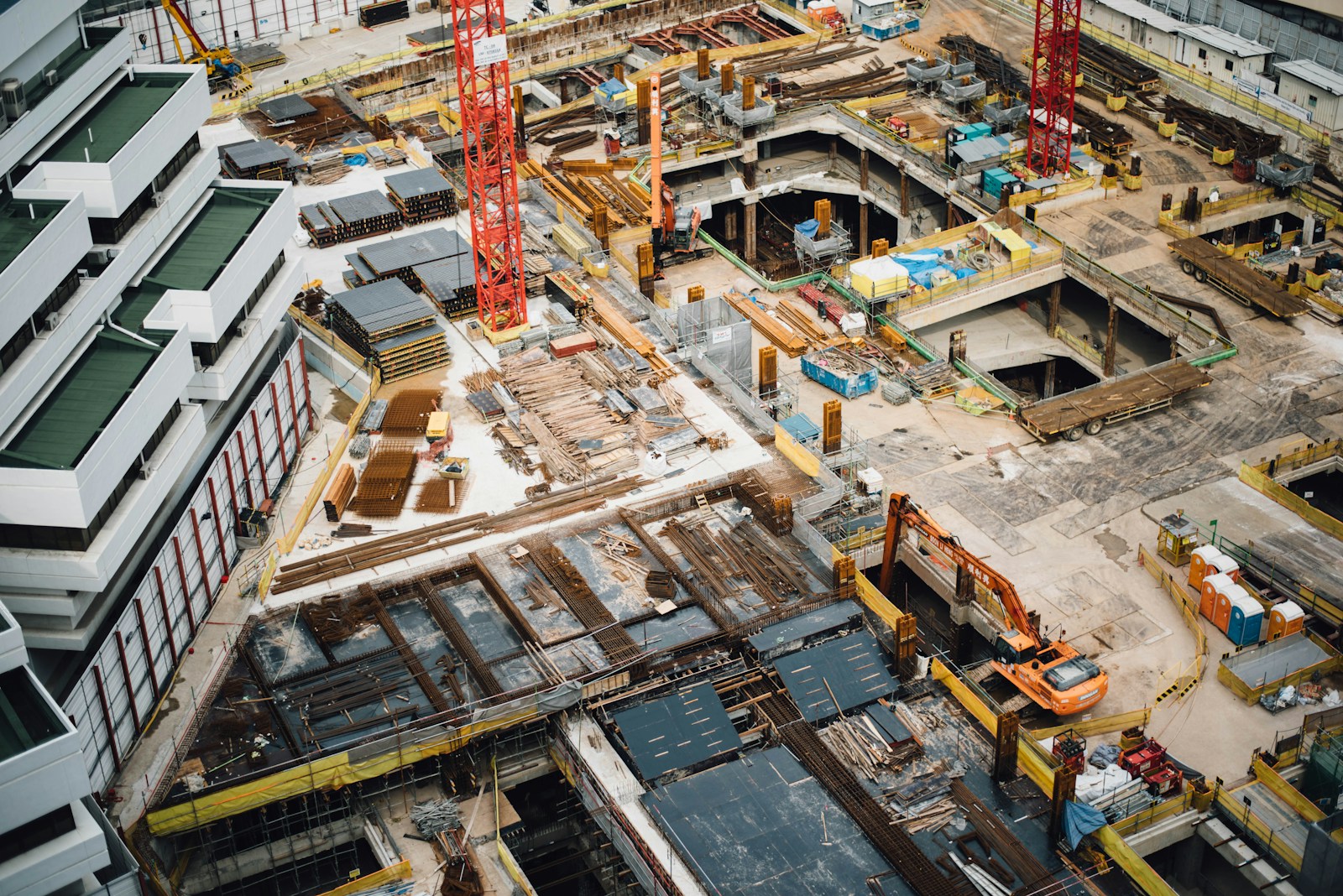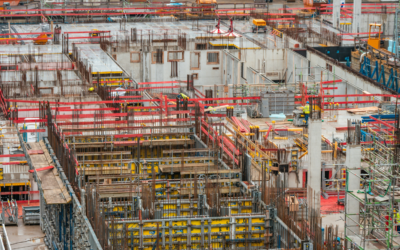Civil construction plays an integral role in shaping the infrastructure that supports communities and drives modern developments. For property and real estate developers, understanding its scope, processes, and significance is vital for successful project execution.
Not only does civil construction contribute to urban development, but it also underpins public safety, transportation, and accessibility. This blog will provide an in-depth exploration of the civil construction industry, its processes, types of projects, and future outlook.
Whether you’re embarking on a residential venture or taking on a large-scale development, this guide will give you the insights you need to make informed decisions and establish a lasting impact.

What is Civil Construction?
Civil construction is a specialized engineering discipline within civil engineering focusing on the actual creation and maintenance of infrastructure. While civil engineering revolves around planning and designing systems to support the built environment, civil construction brings those plans to life. Roads, bridges, dams, airports, pipelines, and railways are prime examples of civil construction projects.
This field requires a harmonious blend of financial investments, state-of-the-art equipment, a skilled workforce, and stringent adherence to safety protocols and building codes. Through efficient project management and execution, civil construction serves its purpose of ensuring sustainability, safety, and community development.
Types of Civil Engineering
Civil engineering is one of the world’s oldest engineering disciplines, dating back to when humans first constructed shelters and canals. Today, it comprises various sub-disciplines, each dealing with unique aspects of our built environment:
-
Structural Engineering: Focuses on designing and building structures like bridges, towers, and buildings with an emphasis on ensuring strength and stability.
-
Transportation Engineering: Enhances the efficiency of transportation systems, including highways, railways, and airports.
-
Geotechnical Engineering: Examines soil and rock properties to determine a site’s suitability for construction.
-
Infrastructure Engineering: Deals with systems that enable urban and suburban living, such as water supply, energy distribution, and waste management.
Pursuing a degree program in any of these sub-disciplines equips students with the necessary skills and knowledge to excel in their chosen field.
These branches enable civil engineers to contribute to diverse sectors, including construction, power generation, transportation, and even aerospace manufacturing.
Civil Construction Projects
Civil construction projects vary widely in scale and impact. They encompass natural and human-made structures, such as:
-
Highways and urban roads, optimizing connectivity between cities.
-
Bridges and tunnels that enhance transportation routes.
-
Dams designed for energy generation and water conservation.
-
Public buildings that serve as hubs of education, health, and governance.
These large-scale projects require meticulous planning and precision. They involve managing resources efficiently while adhering to strict timelines and maintaining harmony with the environment.
A well-executed civil construction project has the potential to boost local economies and improve overall quality of life.
The Civil Construction Process
The civil construction process is a multi-faceted journey that transforms blueprints into tangible structures. Here’s an overview of the key stages involved:
Planning and Design:
-
This initial stage is crucial for defining the project scope, budget, and timeline. Civil engineers and architects collaborate to create detailed designs and plans, ensuring all aspects of the project are meticulously outlined. This phase often involves feasibility studies, environmental impact assessments, and securing necessary permits.
Procurement:
-
Once the design is finalized, the next step is to acquire the necessary materials and equipment. This involves selecting contractors and suppliers through a competitive bidding process. Effective procurement ensures that high-quality resources are available when needed, optimizing both cost and efficiency.
Construction:
-
The actual construction phase is where the project comes to life. Site engineers and construction managers oversee the daily operations, ensuring that the work adheres to the design specifications and is completed on time and within budget. This stage requires rigorous adherence to safety standards and building codes.
Testing and Commissioning:
-
Before the project is handed over, it undergoes thorough testing and commissioning to ensure all systems function correctly. This stage involves quality checks, safety inspections, and performance evaluations to verify that the construction meets all regulatory and design requirements.
Maintenance:
-
Post-construction, the focus shifts to maintaining the structure to ensure its longevity and functionality. Regular maintenance activities are essential to address wear and tear, prevent deterioration, and uphold safety standards over time.
Civil Engineering Projects vs. Commercial Construction
It’s essential to differentiate civil engineering projects from commercial construction. While both overlap in their goals of development and innovation, they cater to different demands:
-
Project Scope: Civil engineering focuses on public infrastructure and community improvements, whereas commercial construction centers on private developments like office buildings and retail spaces.
-
Ownership and Goals: Civil projects are often government-funded and community-driven, while commercial developments in the private sector prioritize profitability and private ownership.
For property developers, understanding these distinctions ensures better collaboration with engineers and contractors, depending on the project type.
Key Stages of Civil Construction Projects
Civil construction is a phased process designed to achieve efficiency and precision. The five core stages include:
Planning:
-
Determine project feasibility, costs, and schedules.
-
Secure necessary permits and approvals from local authorities.
-
Establish and update boundary lines to define property boundaries and facilitate construction projects.
Design:
-
Develop blueprints that adhere to safety standards and environmental regulations.
-
Employ tools like CAD (Computer-Aided Design) to finalize designs.
Procurement:
-
Source quality materials, skilled labor, and advanced machinery.
-
Negotiate contracts with vendors and suppliers to optimize costs.
Construction:
-
Execute the design plans, following timelines and maintaining safety standards.
-
Regularly inspect the work to ensure quality and compliance.
Completion:
-
Conduct final safety checks and obtain regulatory clearance.
-
Handover the completed structure to clients or end-users.
Effective project management throughout these phases is key to delivering successful results.
Careers in Civil Construction
This industry offers a wealth of career opportunities, from hands-on roles to management positions:
-
Site Engineers oversee daily operations and ensure the project adheres to design specifications and codes.
-
Project Managers coordinate resources and schedules to achieve project goals within budget and deadline constraints.
-
Civil Engineers apply advanced technical knowledge to design and optimize infrastructure projects.
-
Geotechnical Engineers analyze soil and rock properties to inform construction projects and ensure site suitability.
Aspiring professionals can enter the industry through different pathways, including:
-
Trade Programs provide practical skills for construction and maintenance work.
-
TAFE Diplomas blend technical expertise with foundational management knowledge.
-
University Degrees provide comprehensive training, ideal for advanced roles in engineering and planning.
Benefits and Challenges of Civil Construction
Civil construction projects bring numerous benefits to communities and economies, but they also come with their own set of challenges. Here’s a closer look at both aspects:
Challenges in Civil Construction
Civil construction projects come with their share of challenges:
-
Regulatory Compliance: Strict building codes and environmental regulations must be followed meticulously.
-
Resource Coordination: Managing financial, human, and mechanical resources requires specialized expertise.
-
Environmental Concerns: Minimizing the impact of projects on natural ecosystems is a growing priority.
-
Technological Adaptation: Keeping up with innovations, such as AI and BIM (Building Information Modeling), is crucial for competitive edge.
These challenges highlight the importance of skilled professionals and efficient project management for a smooth construction process.
The Role of Technology in Civil Construction
Cutting-edge technology is revolutionizing civil construction. Drones provide aerial surveys to assess land conditions, while 3D printing accelerates prototype development and reduces material waste. Additionally, AI-driven software analyzes data to improve design accuracy and project timelines. For stakeholders, staying at the forefront of technological advancements ensures better decision-making and resource management.
Sustainability and the Future of Civil Construction
Green infrastructure projects and sustainable building materials are shaping the future of civil construction. With growing awareness around climate change, there’s an increased demand for energy-efficient systems and resilient structures that reduce carbon footprints. Civil construction companies are progressively adopting eco-friendly practices, such as recycling waste and using renewable energy sources during construction.
Other Types of Construction
While civil construction focuses on large-scale public infrastructure, other significant types of construction include:
-
Residential Construction for housing and communities.
-
Commercial Construction for offices, retail spaces, and private developments.
-
Industrial Construction for manufacturing plants and storage facilities.
The Industrial Revolution played a key role in the development of civil engineering, leading to the establishment of new engineering education initiatives to meet the growing demands of the time.
Each type demands distinct expertise and approaches, making collaboration between disciplines essential for cohesive urban growth.

Building the Future with Civil Construction
Civil construction isn’t just about building physical structures. It’s about creating safe, efficient, and accessible spaces that enhance community life. By prioritizing sustainability and leveraging technology, the civil construction industry is set to revolutionize the built environment for generations to come.
If you’re ready to begin your next big project or need expert guidance, contact South Coast Improvement Company today. With decades of experience and a dedication to excellence, we specialize in delivering tailored construction solutions that exceed expectations.
Learn More About Civil Construction
To deepen your understanding of civil construction, explore the following resources:
-
American Society of Civil Engineers (ASCE) – A leading professional association providing resources, standards, and insights into civil engineering and construction practices.
-
U.S. Department of Transportation – Learn about infrastructure projects, policies, and initiatives shaping transportation networks across the country.
-
National Institute of Building Sciences (NIBS) – Access resources on sustainable construction practices, building research, and innovative techniques for modern construction.
-
Construction Industry Institute (CII) – Gain insights into best practices, project management strategies, and industry advancements.
-
World Green Building Council – Discover global efforts towards sustainable and green construction to promote environmentally friendly urban development.
-
American Society of Safety Professionals (ASSP) – Explore resources on workplace safety, risk management, and training programs to enhance construction site safety standards.
-
Engineering News-Record (ENR) – Stay updated with the latest news, trends, and innovations in the engineering and construction industry.
-
Global Infrastructure Hub – Access data, tools, and knowledge to support sustainable infrastructure development worldwide.
-
Urban Land Institute (ULI) – Learn about land use, real estate development, and urban planning to create thriving and equitable communities.
-
International Code Council (ICC) – Discover guidelines, codesAn error occurred during generation. Please try again or contact support if it continues.
These resources offer valuable knowledge to stay informed about the latest trends, innovations, and best practices in civil construction.
View Our Work
Aspen Dental
Partnering with The Aspen Group on the construction of a new Aspen Dental facility that’s functional & welcoming for patients & staff alike. South Coast Improvement Company was awarded the construction of a new Aspen Dental facility in Killingly, CT. The...
Springhouse Senior Living – HumanGood
Designed to enhance comfort & functionality. South Coast Improvement company was hired by HumanGood for an interior and exterior renovation at Springhouse Senior Living. Our skilled teamtransformed the 2nd through 5th floor common areas into brighter, more...






